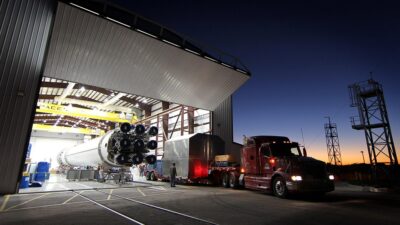The automotive industry is undergoing a revolutionary transformation, driven largely by the rise of electric vehicles (EVs) and the advancement of artificial intelligence (AI). As these two innovative fields converge, they promise to redefine how we think about transportation, sustainability, and the future of mobility. This article explores this intersection, examining how AI enhances EVs’ performance, safety, efficiency, and user experience.
The Rise of Electric Vehicles
Electric vehicles are becoming a mainstay on roads worldwide, touted for their environmental benefits, efficiency, and the promise of a reduced carbon footprint. Governments and consumers alike are increasingly leaning towards electrification, driven by the urgent need to combat climate change and reduce reliance on fossil fuels. With advancements in battery technology, charging infrastructure, and vehicle design, EVs are gaining momentum and becoming more accessible to the general public.
AI: The Brain Behind Smart Cars
Artificial intelligence is revolutionizing numerous sectors, and the automotive industry is no exception. AI can process vast amounts of data, learn from it, and adapt to changing conditions. In the context of EVs, AI plays a critical role in enabling smarter, safer, and more efficient vehicles. Here’s how:
1. Autonomous Driving
One of the most significant applications of AI in EVs is in autonomous driving technology. Companies like Tesla, Waymo, and others are investing heavily in AI algorithms that allow vehicles to navigate complex environments and make real-time decisions. By leveraging data from various sensors—including cameras, LiDAR, and radar—these systems can interpret their surroundings, recognize traffic signs, and respond to unexpected obstacles, aiming for a future where cars drive themselves safely and efficiently.
2. Predictive Maintenance
AI can revolutionize how we maintain and service vehicles. By analyzing data gathered from sensors embedded in the vehicle, AI systems can predict when maintenance is needed, significantly reducing the chances of breakdowns. This predictive capability leads to reduced costs for consumers and less downtime for vehicles, enhancing overall satisfaction and safety.
3. Smart Energy Management
Electric vehicles are not just about zero emissions; they also involve efficient energy utilization. AI can optimize battery performance and charging processes, managing energy consumption based on driving patterns and environmental conditions. By determining the best times to charge and adaptively managing energy distribution, AI can help extend battery life and improve range, alleviating range anxiety for drivers.
4. Enhanced User Experience
AI plays a vital role in creating a more personalized and seamless user experience for EV drivers. Intelligent virtual assistants can interact with drivers to provide real-time information, control in-car settings, and optimize routes based on traffic and weather conditions. AI-powered infotainment systems can learn driver preferences, curate playlists, and even suggest nearby charging stations, making the driving experience more enjoyable and convenient.
5. Data-Driven Insights
The integration of AI in EVs also enables manufacturers to gather and analyze large sets of data. This information can be used to enhance vehicle designs, improve safety features, and innovate new technologies. By continuously learning from user behavior and environmental factors, AI helps in developing smarter, more adaptable vehicles that can evolve to meet changing demands.
Challenges and Considerations
While the integration of AI and EV technologies holds tremendous potential, it is not without its challenges. Issues related to data privacy, cybersecurity, and ethical considerations regarding autonomous driving need to be addressed. Regulatory frameworks must evolve to support the safe interaction of these technologies in our daily lives, fostering public trust and acceptance.
The Road Ahead
The intersection of AI and EVs is poised to drive a paradigm shift in the automotive industry. As technology continues to evolve, we can expect an increase in the capabilities of electric vehicles, making them smarter, safer, and more efficient. With ongoing investment and research in AI and battery technologies, the future of transportation promises to be both sustainable and innovative.
In conclusion, the synergy of AI and electric vehicles signifies a monumental step toward a smarter, cleaner transportation future. As we embrace this evolving landscape, we are not just steering our vehicles toward a more sustainable tomorrow but also reshaping the very essence of mobility. The journey is just beginning, and the road ahead is one filled with exciting possibilities.



